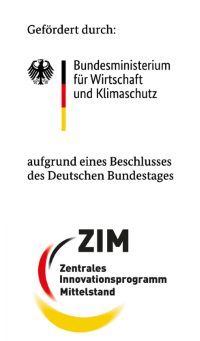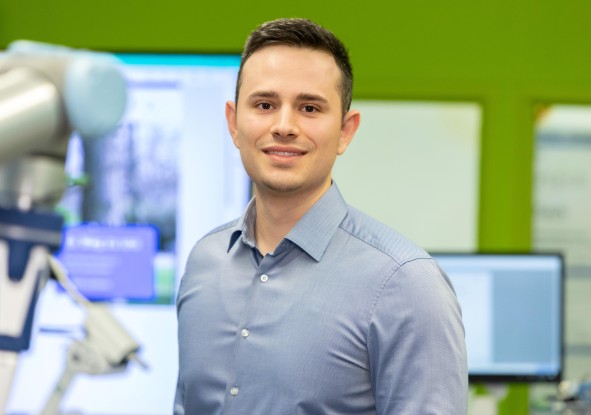On June 1, 2023, the “RoboTeach” research project will start at PLCM under the leadership of Prof. Dr.-Ing. Schleich, funded by the Federal Ministry of Economics and Climate Protection (BMWK). The aim is to revolutionize the integration of robotics into the production processes of small and medium-sized enterprises (SMEs). Essert GmbH, CCS Service and Ravensburg-Weingarten University of Applied Sciences are involved as project partners. Over the next two years, topics such as OPC UA, automation, robotics, virtual reality (VR) and augmented reality (AR) will be intensively researched and further developed.

General information
An impressive trend is emerging in the dynamic world of industrial robotics: according to the market study by Mordor Intelligence, the global market, which was worth 24.35 billion US dollars in 2020, is expected to grow to 52.85 billion US dollars by 2026. This projected growth rate of 14.11% per year reflects not only technological progress, but also the increasing need for efficient, automated production. However, these figures conceal a challenge: the complex and often costly integration of robots into existing production lines. For German SMEs in particular, this is a key obstacle that limits their ability to use and benefit from this technology. The need to simplify and democratize this integration is clear and at the core of the project vision. RoboTeach aims to bridge the gap between the latest technological innovations and the real-world needs of small and medium-sized enterprises, with the use of digital twins playing a key role. These virtual images make it possible to accurately simulate and optimize robotic systems and their interactions in the production environment before they are physically implemented.
Goals
The goal is to make the integration of robots into production processes a seamless, cost-efficient and, above all, accessible endeavor. Imagine a method where robot programming is no longer done by specialists with in-depth programming knowledge. RoboTeach plans to revolutionize this through the use of Augmented Reality (AR), Virtual Reality (VR) and web technologies. A key element here is the introduction of a WYSIWYG editor that enables robot actions to be visualized and modified in real time. Another key element is the use of digital twins, which make it possible to simulate both the robot and its environment in a virtual world. This approach makes robot programming intuitive and accessible, even for those without extensive programming experience. There will be a focus on location-independent collaboration, enabling people worldwide to visualize and program the digital twin at the same time. By using a standardized communication layer (OPC UA), robot systems from different manufacturers can be integrated.
RoboTeach aims not only to make a significant contribution to the further development of the automation industry, but also to enable small and medium-sized enterprises to position themselves at the forefront of technological progress and strengthen their competitiveness in a rapidly growing market.



